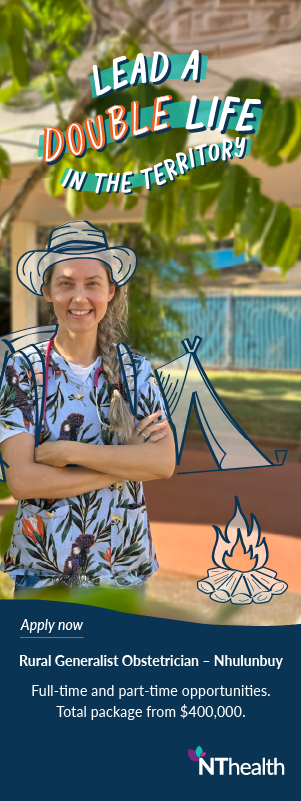Professor Martha Hickey was recruited to the University of Western Australia, in 2001, to establish a new research program in gynaecology. Since 2002, she has been a chief investigator on successful competitive grants totalling more than $5 million. Today she is Director of the Royal Women’s Hospital’s Gynaecology Research Centre, an NHMRC Practitioner Fellow and Professor of Obstetrics and Gynaecology at the University of Melbourne. How did she progress her career?
Understanding that most conditions have a physical and psychological component, Professor Hickey initially graduated in Clinical Psychology in 1981. She spent a year in India as a Rotary Postgraduate Scholar before commencing medical training in 1984 on a scholarship for from the University of Bristol. In 1994 she was awarded Membership of the Royal College of Obstetricians and Gynaecologists. In 1995, Dr Hickey was awarded a RANZCOG Foundation Arthur Wilson Memorial Scholarship to undertake research on irregular endometrial bleeding with Professor Ian Fraser at the University of Sydney. ‘The scholarship had a huge impact. It helped me achieve our research aim and to progress my career as a researcher.’
After completing her research, Hickey moved back to the UK to complete a Doctorate in Reproductive Health from The University of Bristol and worked at Imperial College School of Medicine. She moved back to Australia in 2001, when she was faced with the challenge of establishing a new research program in gynaecology. ‘Funding was a big challenge. There was great enthusiasm to participate in gynaecology research but relatively few opportunities for clinicians.’
In 1989, the Western Australian Pregnancy Cohort (Raine) was established to determine how events during pregnancy and childhood influence health in later life. Between 1989 and 1991, 2900 women entered the study and 2868 live births were recruited; making the study one of the largest successful prospective cohorts in the world. Professor Hickey was fortunate to be able to work with this cohort. She applied for funding from NHMRC and undertook a study of the fetal and childhood origins of polycystic ovary syndrome (PCOS). Her research in reproductive endocrinology led to her appointment, in 2003, as research consultant to prestigious organisations such as the World Health Organization (WHO), the National Institutes of Health and the World Bank. In addition to this, in 2002, she was selected Editor of the Menstrual Disorders and Subfertility Cochrane Group, where she has contributed to many systematic reviews and promoting evidence-based clinical practice in workplaces and in the development of national and international guidelines.
‘I have a growing interest in evidence-based health care. Understanding gender and the social determinants of women’s health is critical, so in my research I try to bring together a broad holistic approach to cover both, psychological and physical aspects of health. There is an increasing availability of psychological interventions to treat common symptoms in menopause such as hot flushes. This is very important, for example, in the case of women with cancer, who can’t use hormonal treatments for their symptoms.’
Professor Hickey currently runs the largest menopause services for women with cancer in Australia. The multidisciplinary clinic brings together oncologists, surgeons, psychologists and other health professionals. In addition to attending to over 1000 new patients per year, the clinic is also actively involved in new research initiatives to develop new non-hormonal treatments for menopausal symptoms. It now has facilities in Western Australia, Victoria, and similar models are being explored in New South Wales. Allied to this, Professor Hickey is also currently leading a consensus group involving clinicians, researchers and patients to discuss the most important outcomes for all groups regarding menopause. This will lead to the development of an international Core Outcomes set for menopause. Since 2002 she has been an Editor of the international menopause journal, Maturitas. In addition to her research, she continues in active clinical work as a consultant gynaecologist at The Royal Women’s Hospital. She also actively supports women in specialist O&G training.
‘I believe that involvement in clinical service improves the quality and relevance of my research and teaching. It’s very exciting to combine clinical work with the opportunity to question that practice.’
Gynaecological research is a great career, but it comes with its challenges.
‘As a mother of three children, I am acutely aware of the issues trying to balance work, research and family life. Women may think that they need to choose between becoming researchers or having a family, which translates into a real shortage of women researchers in this field. This is worrisome because the questions women ask regarding women’s health are different to the ones that men ask. Organisations need to recognise the barriers preventing women from engaging in research and the gender imbalances that pervade in our field. There’s a lot of work to be done. And a huge need for people who want to step up.’



